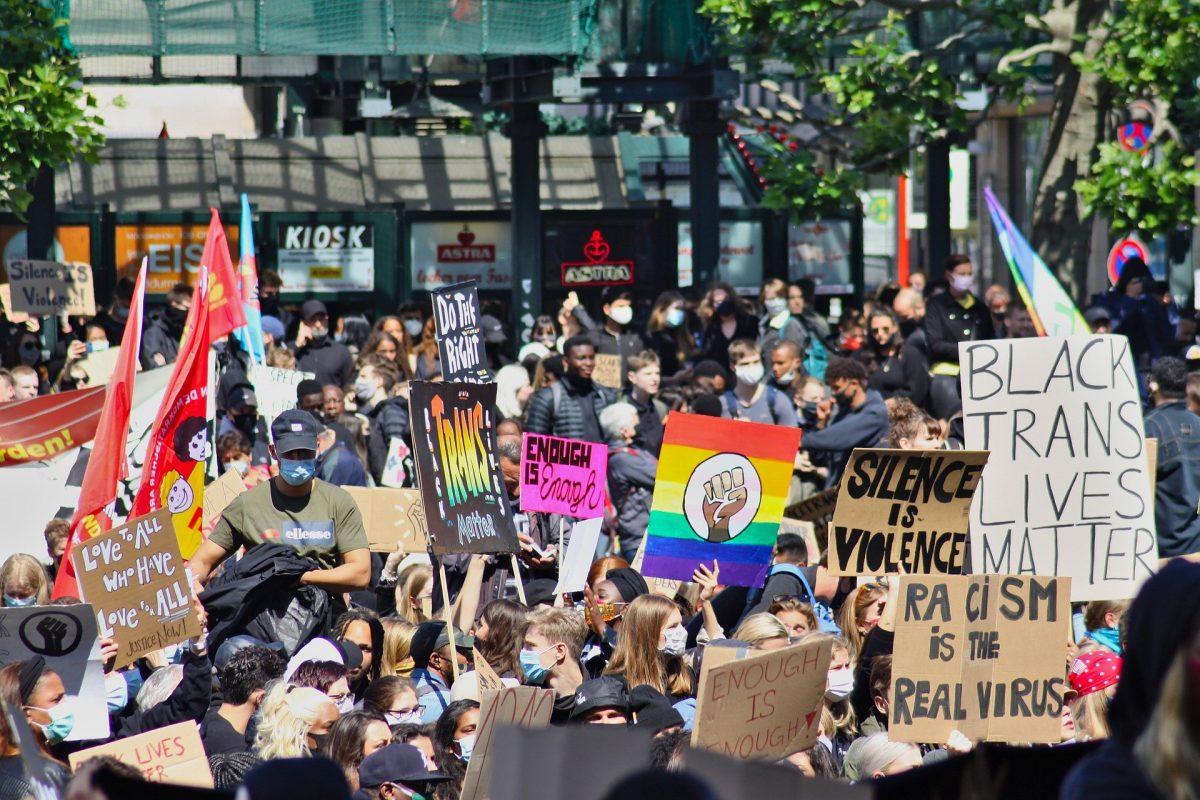The recent controversy surrounding Drake University English professor Beth Younger’s Twitter activity—in which she has tweeted, among other things, that “I was just pondering how much hatred I feel towards all the republican assholes. They need to suffer,”—has stirred up older conversations about purported poor professorial conduct on Drake’s campus. Specifically, the conversation Drake has had many times before, about the use of the n-word and other racial epithets in the classroom.
Madyson Sklar is a junior at Drake who was involved in submitting a successful resolution to Drake’s Faculty Senate in September 2020 condemning “the use of racial epithets and other language known to marginalize people in a protected class.”
“Being a Black woman on Drake’s campus and having that conversation come up—well, part of you is like, ‘Well, here we go again. We’re gonna talk about it and we ain’t going to do nothing about it,’” Sklar said. “And there’s another part of you that’s like, ‘yep, I’m fully in this conversation and I’ll always be in this conversation.’ And then there’s that part of you that’s like, ‘yep, it’s going to pass this time, it’s going to happen. We’re going to do it, we got it.’”
But the issue never really stops for Black students, and for some of them, it’s become a part of the reality of going to a predominantly white institution like Drake. Morgan Coleman, a junior at Drake who was also involved in the Faculty Senate resolution, dealt with this issue personally in one of her classes as recently as fall 2020.
“This is the kind of pushback that I got when I addressed it in the class that I had last semester,” Coleman said. “The professor was kind of like, ‘well, what about Black authors and literary people who want white students, faculty [and] spaces to use this word to feel uncomfortable?’ I said, ‘Well, first of all, let’s not speak for anyone else. You as a white professor do not get to dictate how Black thought is translated into academic spaces.’”
Coleman continued, “Not only is it creating a hostile learning environment for Black students…it also is extremely detrimental to white students, and for non-black students of color. Professors act as an authority in the classroom whether they like it or not…many students have come from different backgrounds…and [they’re] expecting [their] teacher to be the supreme authority on whatever kind of material is being covered in that classroom. So, once stuff like that happens, whether it be [the professor] saying the n-word or whatever form [of racial epithet], or them just using blatantly racist and ignorant statements—that is leaving a mark on those students and making them believe that these things are okay.”
Some feel there are similarities between what has happened with Younger and conservative and Republican students, and what has continually happened at Drake with multiple professors and Black students; mainly, that a professor has directed hurtful language against a particular group of students.
Coleman and Sklar both expressed sympathy for the students who have been negatively affected by Younger’s tweets, and for their goals.
“You have to be held accountable for your words,” Sklar said, in reference to Younger.
However, Coleman and Sklar both emphasized that the differences in the situation outweigh the similarities. Specifically, they feel that there is a difference between how Drake’s administration responded to Younger’s tweets and how it responded to professors using racial epithets in the classroom.
Drake student Mikayla Simpson first posted screenshots of Younger’s tweets to Facebook on Jan. 18. Less than two weeks later, on Jan. 27, Marty Martin, president of Drake University, sent out a campus-wide email with the subject line, “Words Have Consequences.” In it, he condemned Younger’s tweets as “odious” and “unacceptable,” and said Younger’s behavior on twitter “is not [the type of behavior] welcome at Drake University.”
“Part of me is like, ‘where was this response for people that look like me?’” Sklar said. “When things that were being said—not on social media but in the classroom, on the campus—where was that response for me, when I called for help? When I said I didn’t feel safe in my identity?”
Coleman had the same reaction.
“I’m like, ‘why don’t I warrant an email?’” Coleman said. “I guess my sentiments about the [Younger’s tweets] situation as a whole haven’t necessarily been viewed through the facts of this issue, but the facts of who I am as a person, and how things in regard to my identity have been handled since I’ve been here.”
Coleman and Sklar both made it clear that the pain conservative and Republican students have felt because of Younger’s tweets is real and valid.
“It’s not to say that I discredit any pain or harm that these students might have felt in seeing those things,” Sklar said.
Coleman emphasized the same thing, but still wondered what, if anything, the controversy surrounding Younger’s tweets meant for her and students like her.
“Again, this is not to invalidate anybody’s pain, I want to make that clear,” Coleman said. “But are we also going to call to fire those who have made us [Black students] feel unsafe, on the basis of something that we cannot change?”
Simpson, along with various other conservative and/or Republican students, called for Drake’s administration to fire Younger over this issue. Coleman and Sklar didn’t necessarily have an opinion on whether Younger should be fired, but they were sure about one thing.
“If they are successful in their petition, then every petition I send better be successful, too,” Sklar said.
Coleman added, “Period. If we’re going to hold people accountable, then everybody needs to be held accountable.”







